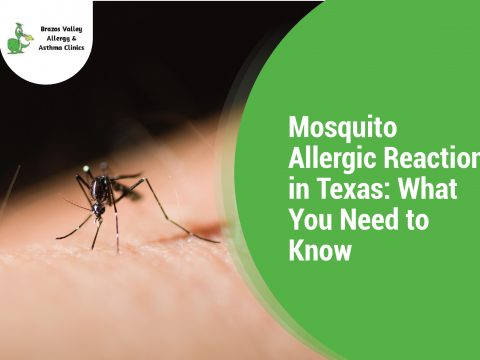- 979-485-9287
- office@bvallergy.com
-
 979-251-7804
979-251-7804
Tips to More Restful Nights With Allergy and Asthma

Everything You Need to Know About Autumn Allergies
September 28, 2021
First Aid Tips for Allergic Reaction
October 13, 2021Maintaining optimal health and well-being requires adequate sleep. Sadly, people with allergies and asthma tend to find themselves sneezing or coughing at night. The Centers for Disease Control and Prevention (CDC) states that although the amount of sleep you get each day is important, the quality of your sleep also matters. However, asthma and allergy sufferers may face complex challenges in getting enough sleep they need. In this article, we will discuss how you can improve sleep despite the allergens.
Sleeping with Allergies and Asthma
Allergies and asthma have more in common than just robbing you of a good night’s sleep. Both may have similar allergens, and some people suffer from them at the same time. For some, skin and food allergens can trigger a severe asthma attack(allergy-induced asthma). Both conditions can also be controlled with proper medications and the right treatment. You must also remove the triggers in your environment that can trigger your allergies or asthma attack.
Effective Tips to More Restful Nights with Allergy and Asthma
1. Keep your room clean.
Clean your room daily, especially if you have asthma. Your dusty corners and bedsheets may harbor dust mites and molds that trigger asthma attacks while you sleep. Likewise, allergy sufferers should make house chores an integral part of their allergy management plan. You can alleviate your allergy symptoms by reducing allergens (substances you are allergic to) in your home. Make sure your cleaning products don’t trigger allergy-like symptoms.
2. Do not allow pets in your bedroom.
Pet allergens may trigger asthma in people. For this reason, they can experience worsening respiratory symptoms. Their lungs may fail to function, as well. Meanwhile, your allergies at night may also become severe. You may experience respiratory tract problems such as chest tightness, congestion, and wheezing. Keeping your bedroom pet-free can prevent allergies and asthma attacks.
3. Place your medications nearby.
You may wonder how you can sleep with allergies. People with allergies and sleep issues keep their medications close. Similarly, it also applies to prevent midnight allergy attacks. Take your medicines at night. Consult your allergist first to avoid severe complications.
4. Wear Clean Clothes
If you are outside during high pollen counts, change into clean clothes when you come home. Avoid bringing your clothes back into your bed. There might be some pollen stuck on it, and it can affect your good night’s sleep. Likewise, make sure to dry laundry in the dryer only; never hang clothes outside to dry.
5. Dehumidifier and Humidifier
Dry, cold air is a discomfort for people with asthma. On the other hand, molds and dust mites linger in warm and damp places. These are the leading cause of allergy and asthma attacks. So, what can you do? In the winter, you may need a humidifier to keep the air in your bedroom moist. For warmer climates, dehumidifiers provide relief from asthmatic triggers.
6. Adapt asthma-friendly sleeping positions.
The National Center for Biotechnology Information states that lying horizontally with face and torso facing up can reduce asthma attacks. But make sure you raise your head or elevate your upper body on some kind of incline to breathe well and sleep better.
7. Take a shower before bedtime.
Showering before bedtime gives you a fresh feeling. As well, it rinses away allergens that might irritate your eyes and nose. Warm showers help relieve sinus pressure and relax your body. Including this in your nighttime routine will enable you to sleep peacefully.
8. Excrete Your Sinuses Before Bedtime
Sleeping can be problematic if your nose is runny or stuffy. Before you go to bed, clear out your nasal passages to relieve nighttime symptoms. Use a saline spray if you like. These don’t cause side effects because they are drug-free. Most physicians highly recommend neti pots. It helps relieve severe nasal congestion. A neti pot irrigates the sinuses and nasal passages with water. Follow the instructions on how to use the device to sleep better and fight nasal congestion.
BVAllergy Can Help
Dealing with asthma or allergies at nighttime deprives you of the sleep that you deserve and need. Don’t suffer from it anymore. Sleep better at night by consulting an allergist.
Paul Jantzi has spent more than 13 years serving the south-central Texas region as an allergist. He is board-certified in allergy and immunology with prior specialty training in pediatrics and internal medicine. Schedule a meeting with him to learn more about immunotherapy and how it can help with your allergy symptoms.




